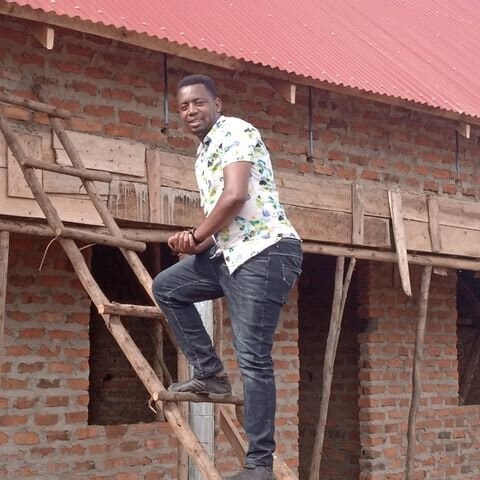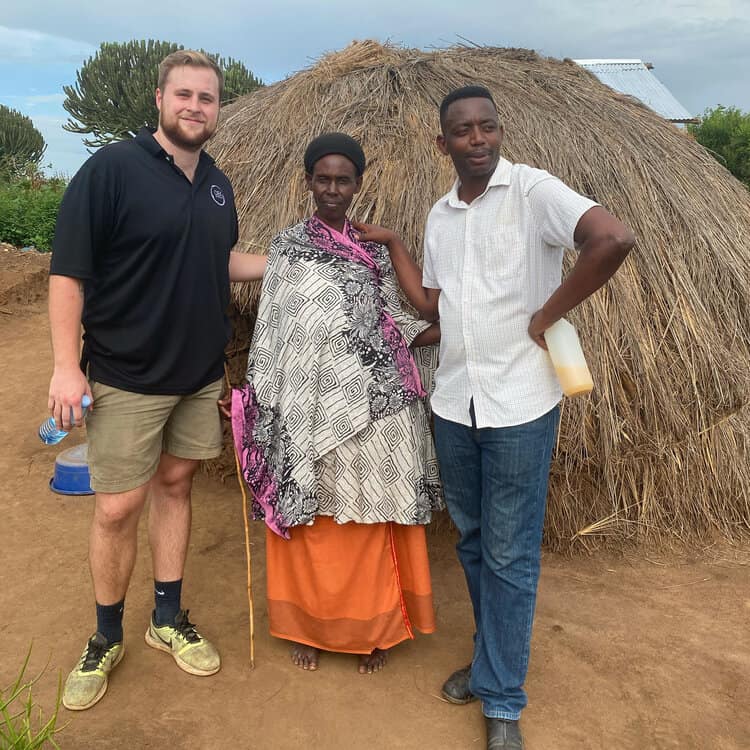
Today we welcome Gideon, Director of Hopeland and Wells of Hope Schools, and our liaison to Rwakobo Village. I’ve known Gideon for about ten years when he was a teacher/tutor at Father’s House in Kampala. We’ve been working together on the schools since May 2019, when my bakery began a Pound for Pound program to provide food for Hopeland School and the Arise Africa Babies Home. I’m so glad to have a chance to chat with him about Rwakobo Village!
J: When and how did the village at Rwakobo come to your attention?
G: We visited it in 2018 when our church [Celebration Tabernacle Church in Mbarara] was doing outreaches to the poorest and most needy areas in our region.
J. What was the first thing Celebration Tabernacle did in the village?
G: Together, the church fed the hungry, built a few mud houses with iron sheets for those who slept in grass huts or were basically homeless, and talked to the parents about the dangers of forced child marriages and other associated vices.
J: How many people live in Rwakobo Village?
G: Almost 3,000 now!
J: What is life like for those living there?
G: They live hand to mouth, well below the poverty line [so below $2 per day]. They hardly have any clean water, getting food is a struggle, and they have no health facilities so they depend on herbs for the treatment of illnesses.
J: What impact has the school made on the lives of the villagers?
G: They have seen the importance of education! Forced early marriages have been reduced, as well as the behaviors associated with that [like abuse, early pregnancy and related complications]. The value of girls has been resurrected!
J: How will the new school building and the reopening of the school after the Covid lockdown affect the children who attend Wells of Hope?
G: Their lives were being threatened over the last year! Not only were schools closed, but churches were also closed so they began to lose hope. They fell back in their educational achievements [school had only just started its third-ever term], and were giving up! The news of the opening will be amazing to them!
J: What impact did the Covid lockdowns and the loss of the full school year have on the children. What negative effects did you see during the last year, and what negative impacts do you anticipate because of the “lost year?”
G: Some children were starving and malnourished. Some were abandoned by their parents in their houses and left alone. Others were forced into early marriage, early pregnancy, and some girls were exchanged for food. The girls who were forced into marriage will not be able to return to school [Wells of Hope only goes to Primary 6]. We also anticipate that the little tuition some parents were able to pay will be reduced, as the parents have lost what incomes they had during the pandemic. Additionally, the families had to eat any seeds that they were saving for planting after the rainy season, so there is little income on the horizon.
J: What difference would having access to clean water, as well as good sanitation and hygiene, have on the school and village?
G: If the village didn’t have to rely on seasonal wells [ponds] and had clean water, the incidence of disease and illness would be greatly reduced! Waterborne illness is one of the biggest problems in the village and the school and accounts for many lost days of class. Diarrhea kills many children in the village. Handwashing stations and clean pit latrines would also help a lot!
J: What is the greatest need in Rwakobo Village?
G: A bigger school so all the children can attend, and funds to pay the staff. Clean water and water easily available for washing. And improved homes for the families who live in grass huts or mud homes.
J: Thank you so much for all your work in this village — and for introducing us to it last year! We can’t wait to get back there as soon as Covid allows!

